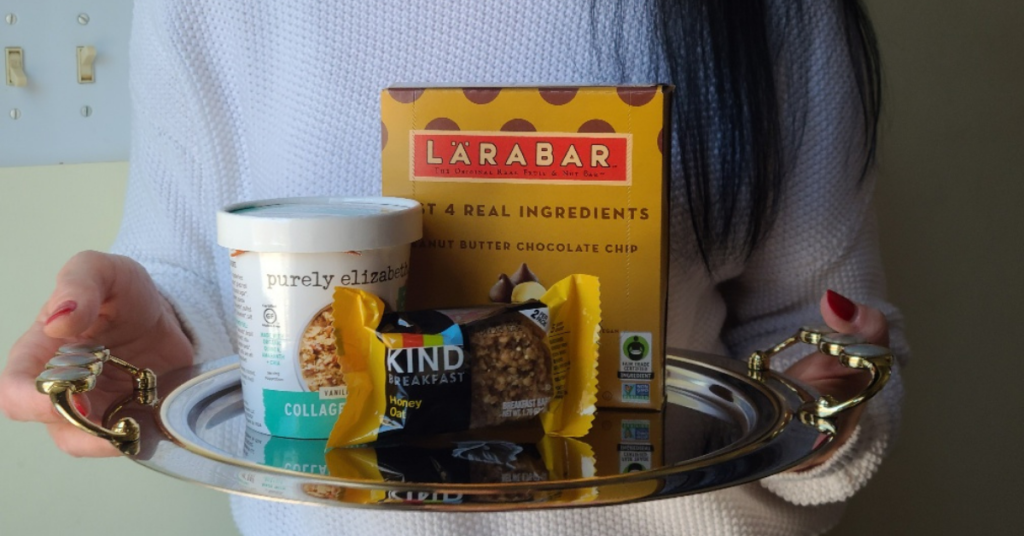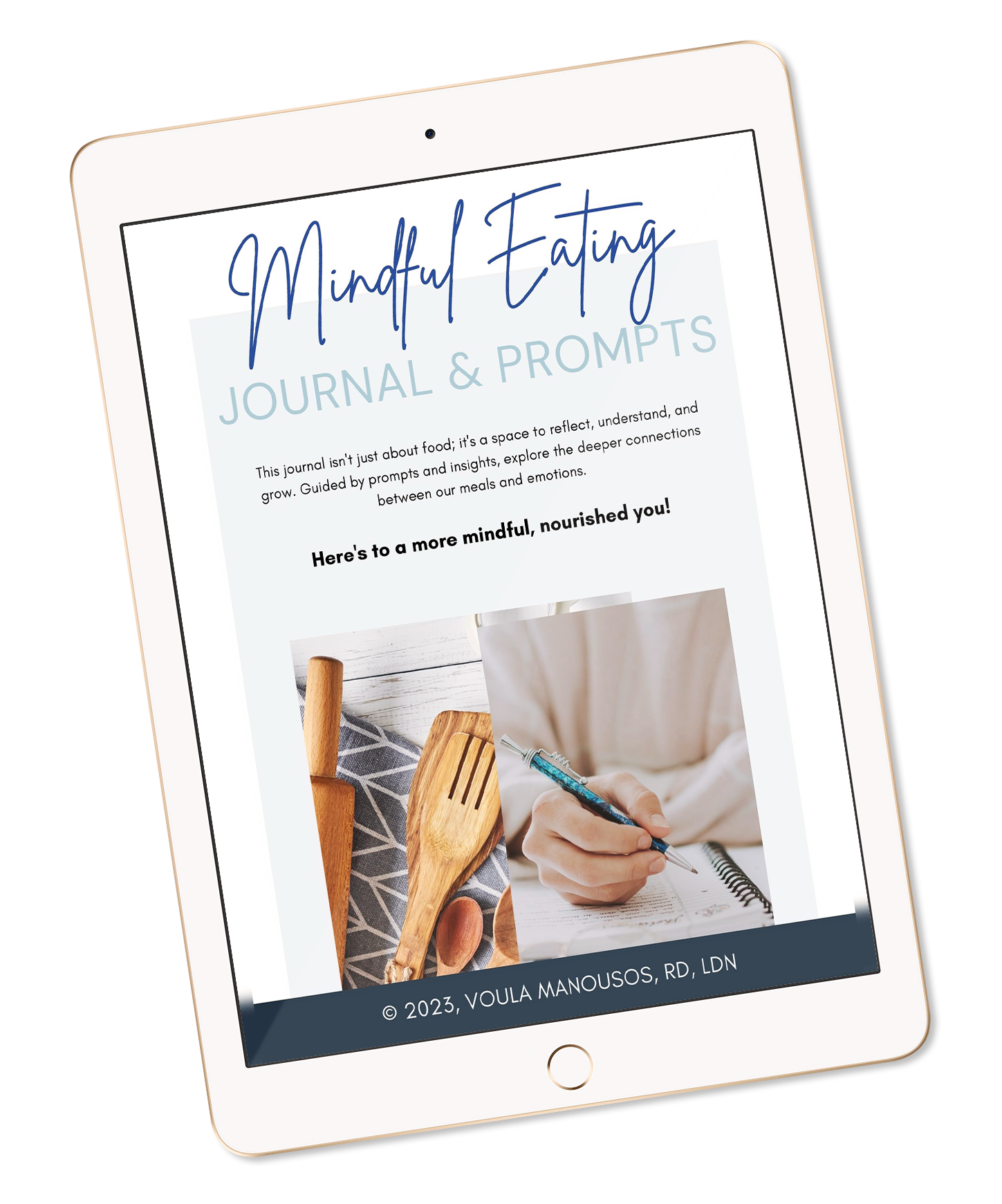Is Snacking Bad?
These are questions I get asked – a lot. To snack or not to snack? What is a healthy snack? I don’t eat meals, but I eat a series of snacks… Is this ok? Will I gain weight if I snack? Will snacking help me lose weight? To sum these all up: Is snacking bad for you?

Well the short answer is: it depends. There are many factors that come into play and every situation is different. For example, if you are inactive most of the day and in front of the couch snacking, you may find yourself mindlessly consuming more calories than you actually need. On the flip side, if you are accustomed to eating dinner early, let’s say at 5pm and you don’t get to bed before 11pm, you might need an evening snack just to get you through the night.
Data from the National Health and Nutrition Examination Survey shows that Americans have gone from eating an average of 3.9 times a day in the 1970s to eating 5.6 times a day in 2010. The average number of calories coming from snacks have doubled and most are consuming a meal’s worth of calories in snacks. This may be excessive if your body isn’t really needing the extra snack and can easily lead to weight gain if it goes unchecked.
The average number of calories coming from snacks have doubled and most are consuming a meal’s worth of calories in snacks.
Snacking is not inherently bad. Snacking can help meet an individual’s daily energy needs and even helps incorporate more nutrients into their diet. Of course, it is not surprising that what you choose to snack on and why you snack matters.

The Anatomy of a Snack
Not all snacks are created equally. The ideal snack should contain three key nutrients: fiber, protein and fat. These three nutrients will not only stabilize your blood sugars and mood, but they will help keep you fuller longer so that you can keep the cravings at bay.
Let’s take a closer look at these nutrients:
- Fiber: Aim for at least 3 grams per serving in a snack. Whenever possible, look for 100% whole grains.
- Protein: Look for at least 5 grams of protein. Your body takes longer to digest protein which helps keep energy levels consistent and “hanger” in check.
- Healthy Fats: Fat provides quality energy to your cells and helps your body absorb essential nutrients. It also helps keep you satisfied.
Smart Portions:
Snacks should be roughly 200 calories and consist of something satisfying. The best snacks do not come in bottomless bags and boxes.
The best snacks do not come in bottomless bags and boxes.
A Few Things To Avoid When Choosing a Snack
- Added Sugars: Unlike natural sugar (found in foods like fruit), added sugar, which gets added in processing, can cause blood sugar levels to spike, which can lead to fatigue and weight gain.
- Refined Carbohydrates: Opt for more whole grains instead of white flour products. They have more protein and fiber than their refined counterparts and are jam packed with essential vitamins and minerals to better help fuel your body.
- Processed Foods: Most processed foods are loaded with salt, sugar, preservatives and unhealthy fats. They are often quickly digested and upset stable blood sugars, which over time, can lead to cardiovascular disease and possible weight gain.

Satisfying and Tasty Snack Ideas
I found this awesome list of Healthy Snacking Ideas here. My top picks include:
- Tahini Toast
- Smoothie bowl with fruit, nuts and low fat yogurt
- Strawberries, goat cheese and multigrain crackers
- Roasted edamame or roasted chickpeas
- Cucumber, whole grain crackers, smoked salmon and lemon juice
- Cut vegetables with hummus or another bean dip
- Lentil chips with guacamole
- Whole grain crackers with canned salmon or tuna
- Greek or Icelandic yogurt and fruit
Timing of Snacks
How do you know if you need a snack or if you’re okay to wait for your next meal?
A good rule of thumb is to check in with yourself every 3 to 4 hours and assess whether you are truly hungry or if you are wanting a snack for other reasons such as boredom, anxiety or stress. Eating for those reasons won’t “fix” the problem, so turning to other solutions rather than food might be the answer. Another reason to snack may be if your next meal is more than 5 hours away. Eating a snack might help avoid overeating at the next meal, or deter mindless eating on higher calorie snacks like chips and crackers which might be more readily available.

Strategic Snack Planning
The best way to snack right is to plan ahead. Prepare a rotation of 3-4 snacks for the week, mixing up the types of vegetables and fruit you buy to keep it interesting. Wash and chop the vegetables and apportion them in small containers with a source of protein and fat. Store the containers in a bin in the refrigerator so you can “grab and go” when you are hungry .
Smart snacking also means you have to plan for the worst, such as when you are stuck in traffic or your meeting ran late and now you’re ravenous. A healthy snack will help tie you over so you can make healthy choices at your next meal. Stash shelf stable nutritious snacks like trail mix, fruit, dried chickpeas, nuts and dried fruit where you might need them:
- in your car
- in your gym bag
- in your desk.
These are your “in case of emergency snacks” that should be available when your routine or schedule changes and you may not have anything available to eat to tie you over.
Mindful Snacking
Try to avoid snacking while you are doing something else, like sending out emails or scrolling on your phone. Instead, take a few minutes to step away from your work or distraction. Mindless eating can lead to overeating and less satisfaction. If you are focused, you are less prone to mindless eating, which can potentially lead to weight gain.

The Bottom Line: Is Snacking Bad For You?
Snacking is a great way to help tie you over between meals so you are not feeling “hangry” and opening yourself up to excessive eating. Being mindful of the type of snack you are eating and its composition is key. Timing of your snack is also important. Remember: all foods fit, but making the “right” snack choices for you when you’re hungry is paramount. It will most probably determine how you feel and what your eating patterns will look like for the rest of the day.
If you need more support in understanding how to fuel your body properly and manage your weight, you can learn more about what I do on my Services page.





